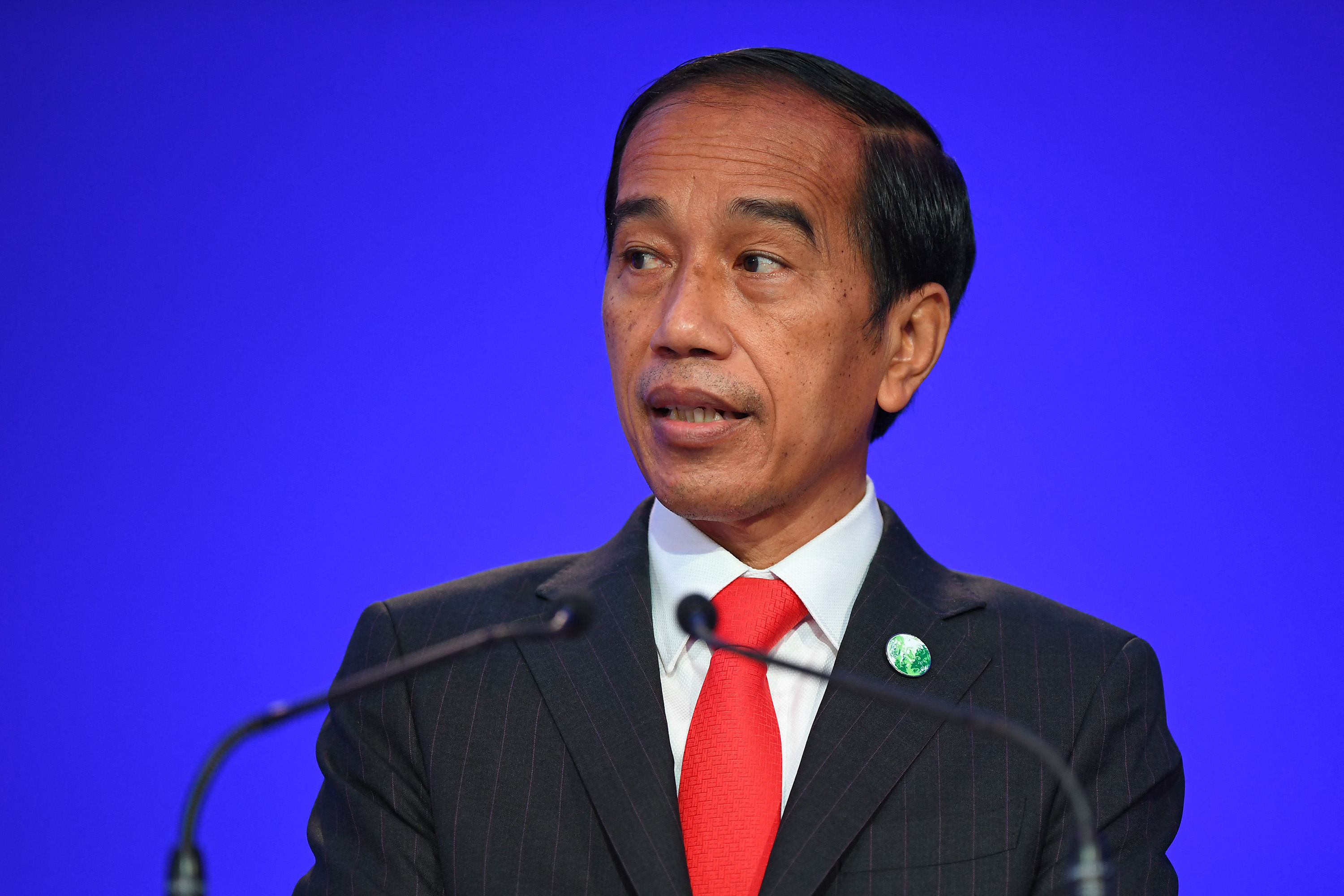


Indonesian President Prabowo Subianto, on his first State visit to India, shared a lighthearted joke about his recent DNA test that revealed his Indian ancestry. He expressed his pride in being in India and wished prosperity for the Indian people. He also highlighted the strong cultural and historical ties between Indonesia and India, and praised Prime Minister Modi's inspirational leadership.
During a recent State visit to India, Indonesian President Prabowo Subianto shared a lighthearted joke about his DNA test results. The test revealed that he has Indian ancestry, a fact that he expressed pride in during his speech.
President Subianto's revelation highlights the strong historical and cultural ties between Indonesia and India. The two nations have enjoyed a long history of trade and cultural exchange, dating back to ancient times. This relationship has been further strengthened in recent years through cooperation in areas such as defense, security, and infrastructure development.
The President's visit to India is a testament to the commitment of both countries to continue building on this strong foundation. During his visit, he met with Prime Minister Narendra Modi and discussed a range of issues of mutual concern, including trade, investment, and regional security.
President Subianto also took the opportunity to pay homage to India's rich cultural heritage. He visited the Taj Mahal, a UNESCO World Heritage site, and met with Indian intellectuals and artists.
His visit is expected to further strengthen the already close relationship between Indonesia and India, and to pave the way for even greater cooperation in the years to come.
1. What is the significance of President Subianto's DNA test results?
President Subianto's DNA test results reveal that he has Indian ancestry, which highlights the strong historical and cultural ties between Indonesia and India. This revelation is a testament to the long history of trade and cultural exchange between the two nations.
2. How has the relationship between Indonesia and India evolved over time?
The relationship between Indonesia and India has evolved over time from trade and cultural exchange in ancient times to cooperation in areas such as defense, security, and infrastructure development in recent years.
3. What are the key areas of cooperation between Indonesia and India?
Key areas of cooperation between Indonesia and India include trade, investment, defense, security, and infrastructure development.
4. What is the significance of President Subianto's visit to India?
President Subianto's visit to India is a testament to the commitment of both countries to continue building on their strong foundation. The visit is expected to further strengthen the already close relationship between Indonesia and India, and to pave the way for even greater cooperation in the years to come.
5. What are some of the key challenges facing the relationship between Indonesia and India?
Key challenges facing the relationship between Indonesia and India include trade imbalances and differing perspectives on regional security issues.

A stampede at the Kasibugga Venkateswara Swamy Temple in Andhra Pradesh has left 10 dead and two injured. The temple had recently reopened and was experiencing high footfall due to a festival. Home Minister Vangalapudi Anitha has ordered a thorough investigation into the causes of the tragedy and has promised strict measures to prevent similar incidents in the future.

India and the United States have strengthened their already strong ties by signing a 10-year framework for their major defense partnership. The agreement, signed during a bilateral meeting between the two countries' defense ministers, emphasizes the importance of this partnership in maintaining a free and open Indo-Pacific region. This marks a significant step in solidifying the bond between India and the US in the defense sector.

In preparation for a major tri-service military drill, India has issued Notices to Airmen (NOTAM) for the entire northeastern region that borders China, Bhutan, Myanmar, and Bangladesh. The first set of exercises will commence in November and continue through January, signaling enhanced operational readiness for the Indian Air Force (IAF). This move is significant as the Northeast remains a sensitive theater, making up the boundary with four countries, including China. The upcoming IAF exercises aim to strengthen India's air dominance, effectively preparing for any potential challenges along the western frontier with Pakistan.

India will conduct a 10-day military exercise in Rajasthan and Gujarat involving the Army, Air Force, and Navy to showcase its operational readiness following Operation Sindoor earlier this year. The exercise, announced through a NOTAM, features advanced military technologies and emphasises the integration of speed, firepower, and precision in desert warfare conditions. It comes amidst heightened tensions with Pakistan and a renewed focus on maintaining military readiness along the border.

Jammu and Kashmir police have filed an FIR against a group of Christian missionaries in Kathua district for allegedly attempting religious conversions through financial incentives. This comes after a video surfaced online showing the missionaries being attacked and their vehicle vandalized by villagers. The incident has sparked outrage and protests from local Hindu groups, demanding action against the accused missionaries. One accused, Ravindra Singh Thela, has been arrested while the main accused, Vivek Soni, is still at large. The police have also suspended eight personnel for failing to stop the attack.

US Vice President JD Vance, who converted to Catholicism in 2019, has revealed that he hopes his Hindu-raised wife, Usha Vance, will eventually embrace Christianity. However, he clarifies that their interfaith marriage is built on mutual respect and understanding, and that Usha has complete freedom of choice in matters of faith. The couple has found a balanced way to manage their interfaith household, with their children attending a Christian school and given the choice to be baptized.

US President Donald Trump has expressed optimism about reaching a trade deal with China "pretty soon" after a meeting with Chinese President Xi Jinping in South Korea. In addition to announcing lower tariffs on Chinese imports, Trump also stated that the issue over US access to rare earths has been resolved. However, there has been no official response from Beijing and the final decision on the sale of Chinese-owned TikTok's US operations is still pending. Analysts see these developments as a breakthrough in the ongoing trade tensions between the two countries. Our correspondents provide insight on the discussions between the two leaders and speculate on why Xi may have felt confident walking into the meeting.

At the Asia-Pacific Economic Cooperation (APEC) Summit in South Korea, Chinese President Xi Jinping and US President Donald Trump met for their first in-person talks in several years. Despite past frictions, Xi called for closer cooperation between the two largest economies in the world, emphasizing the importance of being "partners and friends." Acknowledging Trump's peace efforts in the Middle East, Xi commended his contributions and praised him as a "tough negotiator." Trump also expressed optimism for a productive discussion on trade and global security.

In a historic event, Prime Minister Shri Narendra Modi addressed the Global Maritime Leaders Conclave and chaired the Global Maritime CEO Forum at India Maritime Week 2025 in Mumbai, welcoming participants from over 85 countries. With major shipping giants, startups, policymakers, and innovators in attendance, the summit showcased India's advancements in the maritime sector, such as the replacement of outdated colonial laws with modern ones and the recognition of large ships as infrastructure assets. Amidst global tensions, India stands as a symbol of strategic autonomy and inclusive growth, ready to take on a leading role in the world's rough seas.

Indian Prime Minister Narendra Modi has declared that the next generation of Goods and Services Tax (GST) reforms will begin on the first day of the Navratri festival. This major economic overhaul aims to streamline the current GST system and support businesses, especially small and medium enterprises. In other news, the National Human Rights Commission (NHRC) and Ministry of External Affairs (MEA) are collaborating to organize a six-day program in New Delhi to strengthen executive capacity for International Technical and Economic Cooperation (ITEC). Lastly, the upcoming BIRC 2025 conference will take place at the Bharat Mandapam in New Delhi.